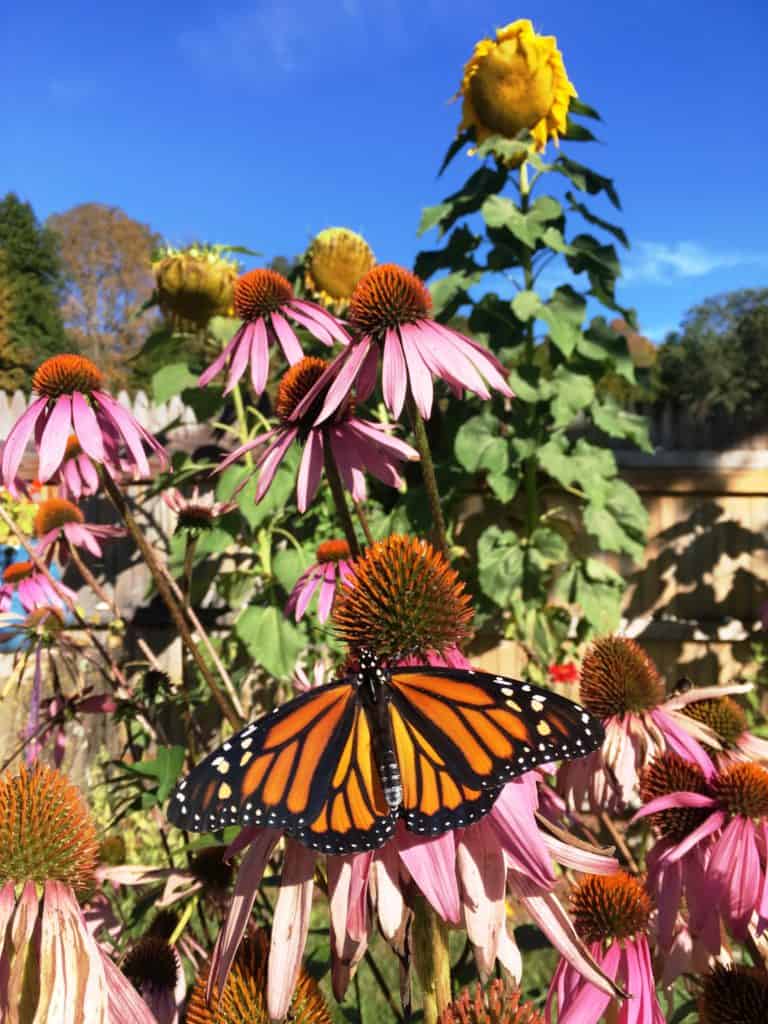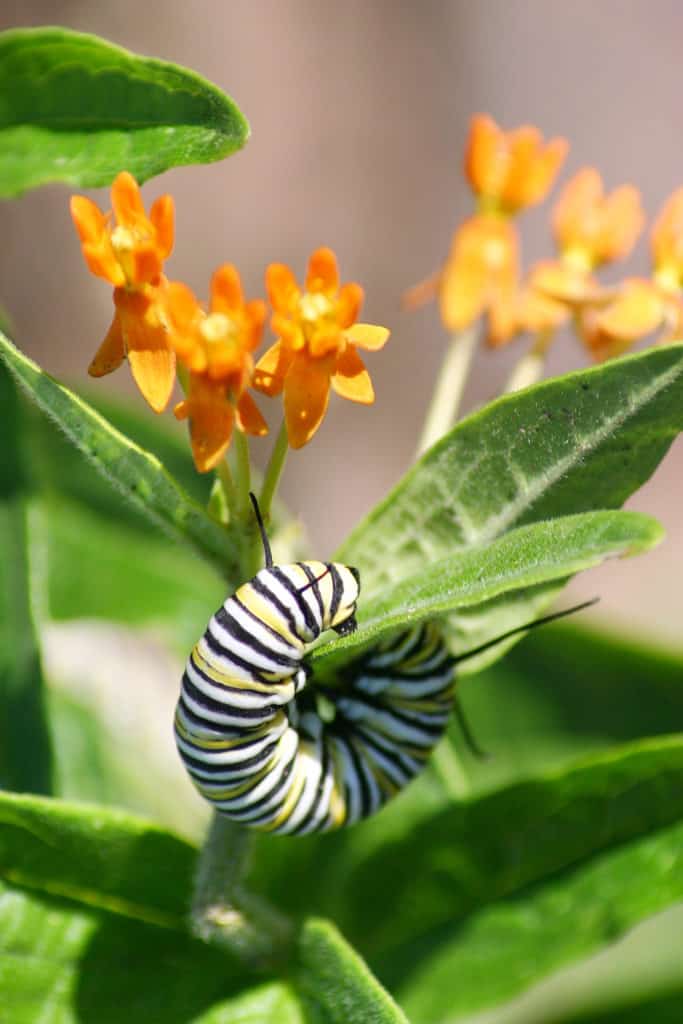
By Bonnie Kirn Donahue
Spending time planning your vegetable garden and thinking about what food you will produce is an excellent way to find some stability in these unsettling times.
While growing our own food is an asset, as well as a source of comfort and enjoyment, I’d like to propose that we also consider providing food and habitat to other creatures that rely on our gardens – the birds, bees, butterflies and the seemingly endless variety of insects that visit us each year.
Why think about these small living things in our gardens? There are many scientific reasons to reassess these relationships and consider many of these visitors as friends.
By being strategic with the plants we select, we can attract beneficial insects to the garden that will actively protect our plants from the more mischievous ones. Planting annuals such as sweet alyssum (Lobularia maritime) and yellow marigold (Tagetes patula ‘Little HeroYellow’) makes a garden more appealing to the beneficial insects that prey on common garden pests.
Native perennials will provide habitat for bees and butterflies that have the incredible responsibility of pollinating the flowers and crops that provide us with visual and physical nourishment. Try planting one of my favorites, the purple coneflower (Echinacea purpurea). This long-lasting bloomer can be started from seed or purchased from most greenhouses.
Its serrated, dark green, ovate leaves offer a lovely, lush texture to the early summer garden. When the pink petals and bright orange flower heads emerge in mid-summer, butterflies and insects are drawn like magnets to this attractive native plant, taking turns perching on each pointy orange cone head and sucking its nectar. Leaving the seed heads up in the winter will bring winter birds to your garden as well.

Easy-to-grow native shrubs provide year-round interest to people, birds and insects alike. Red-twig dogwood (Cornus sericea) has incredible red-hued stems that look fantastic in the late winter when planted in groups or individually. Though not overly ornamental, birds and insects are attracted to the shrub’s flowers and fruit.
Winterberry (Ilex verticillata) produces amazing bright-red berries that birds love (though toxic to humans). The inconspicuous flowers are attractive to honey bees. Both shrubs grow well in full sun to part shade and can tolerate a range of soil types.
Native plants have a long co-evolutionary history with pollinators, so select true native plants, and ideally not the cultivars, when landscaping to ensure that you are providing the most benefit. It’s also important to work toward constant and overlapping flowering of native plants to accommodate the most diversity of pollinators. Check with your local greenhouse or nursery for recommendations for your area and growing conditions.
By inviting more beneficial birds and insects into our gardens to protect and pollinate them, we will be rewarded with endless hours of entertainment in the form of buzzing, swooping, chirping and hopping. As the earth warms, these natural visitors are friends that we can safely welcome into our lives.
For more information, visit the University of Vermont Extension Master Gardener gardening resources web page at go.uvm.edu/garden-resources and click on “Pollinators.”
Bonnie Kirn Donahue is a UVM extension master gardener and landscape designer from central Vermont.




